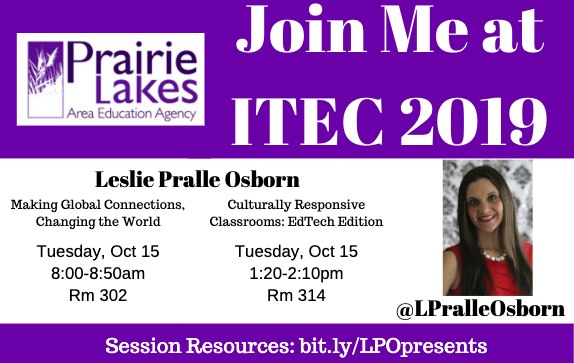I spent my morning providing feedback on (adult) student reflections about white privilege for a class I'm teaching on culturally responsive teaching. White privilege and racism are HARD topics (evidence - people don't talk about them, people shut down as soon as you bring them up, people refuse to even consider their part in them, very few likes or interactions when I mention race on social media ;) but SO important. I wanted to share some takeaways from the group.
1. If you're white, you benefit from white privilege. White privilege doesn't mean you have money or connections or things handed to you, it means that you get to walk into a room and most people look like you. It means your teachers looked like you. It means realtors show you all the houses in all the neighborhoods. It means you can shop in a store without raising suspicion. It means you can go shopping for a holiday card and find a wide variety in any store that fit your needs. You did not earn these things. They were given to you because you are white. That is the privilege.
2. There are different kinds of privilege. In our country that means: Men have privilege that women don't have. Christians have privilege that Muslims don't have. Wealthy people have privileges that poor people don't have. It's not a one-size-fits-all label, it's a process of being aware enough to know where your personal privilege lies.
3. Racism is NOT binary. We don't live in a racist = bad, not racist = good world, as much as we'd like to make it that simple. Racism, by definition, is about SYSTEMS. Systems are in place that benefit the group in power or hurt those who are not. By definition, in the USA, as a white person, you benefit from this system. It doesn't make you a bad person. It means you have the opportunity to use your privilege to disrupt the system. It also means that by definition, there is no such thing as reverse-racism and people of color cannot be racist. Biased? Sure. Bigots? Yes. Racist? No.
One of my participants used my mantra when it comes to this work - KNOW BETTER, DO BETTER. If we don't know, we can't do. So here's my tiny piece of education to help with the "knowing" part. So the question to them was, what do we do with this information in the classroom? Before I share some of their ideas or my own, I'd love to know what you think. What do we do with an understanding of privilege as teachers?
*For this assignment participants were asked to read Peggy McIntosh's "White Privilege: Unpacking the Invisible Knapsack"
1. If you're white, you benefit from white privilege. White privilege doesn't mean you have money or connections or things handed to you, it means that you get to walk into a room and most people look like you. It means your teachers looked like you. It means realtors show you all the houses in all the neighborhoods. It means you can shop in a store without raising suspicion. It means you can go shopping for a holiday card and find a wide variety in any store that fit your needs. You did not earn these things. They were given to you because you are white. That is the privilege.
2. There are different kinds of privilege. In our country that means: Men have privilege that women don't have. Christians have privilege that Muslims don't have. Wealthy people have privileges that poor people don't have. It's not a one-size-fits-all label, it's a process of being aware enough to know where your personal privilege lies.
3. Racism is NOT binary. We don't live in a racist = bad, not racist = good world, as much as we'd like to make it that simple. Racism, by definition, is about SYSTEMS. Systems are in place that benefit the group in power or hurt those who are not. By definition, in the USA, as a white person, you benefit from this system. It doesn't make you a bad person. It means you have the opportunity to use your privilege to disrupt the system. It also means that by definition, there is no such thing as reverse-racism and people of color cannot be racist. Biased? Sure. Bigots? Yes. Racist? No.
One of my participants used my mantra when it comes to this work - KNOW BETTER, DO BETTER. If we don't know, we can't do. So here's my tiny piece of education to help with the "knowing" part. So the question to them was, what do we do with this information in the classroom? Before I share some of their ideas or my own, I'd love to know what you think. What do we do with an understanding of privilege as teachers?
*For this assignment participants were asked to read Peggy McIntosh's "White Privilege: Unpacking the Invisible Knapsack"

 RSS Feed
RSS Feed
